The MBA Aggies Sponsorship Garden
September 27, 2021
September 27, 2021
September 27, 2021
September 23, 2021
September 20, 2021
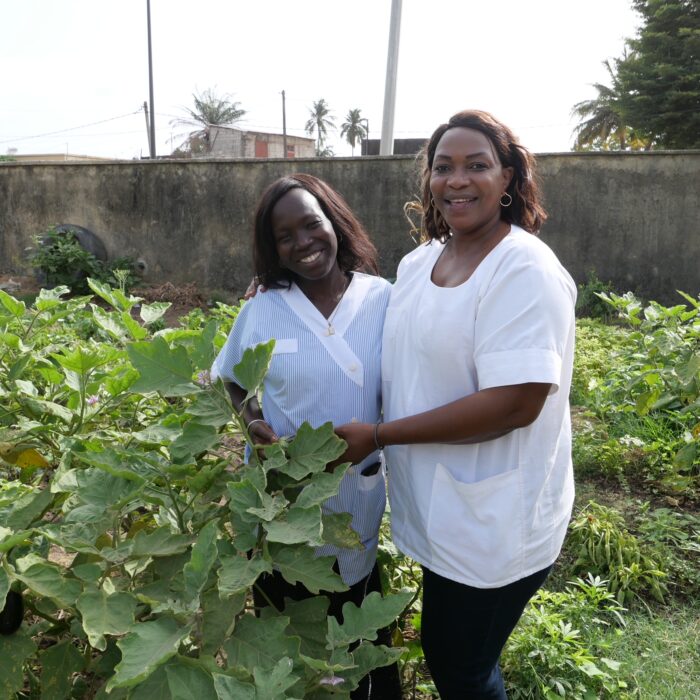
Development in Gardening (DIG) was founded by two US Peace Corps volunteers who served in Senegal, West Africa in the mid 2000s. Rooted in the belief that food is a powerful leverage point for changing the world, DIG is focused on using regenerative agriculture to improve the nutrition, livelihoods, and wellbeing of some of the world’s most uniquely vulnerable communities.
One of DIG’s founding board members, Alan Silverman, was instrumental in directing the organization’s strategic focus towards serving people living with HIV (PLWHA). Understanding the critical role good nutrition plays in the care and treatment of HIV, Alan encouraged DIG to build lasting partnerships with hospitals and clinics prioritizing this uniquely vulnerable population. In moments where DIG might have chosen a more generalized focus on agriculture, Alan stressed the unique role DIG can play in filling critical gaps for these most marginalized groups.
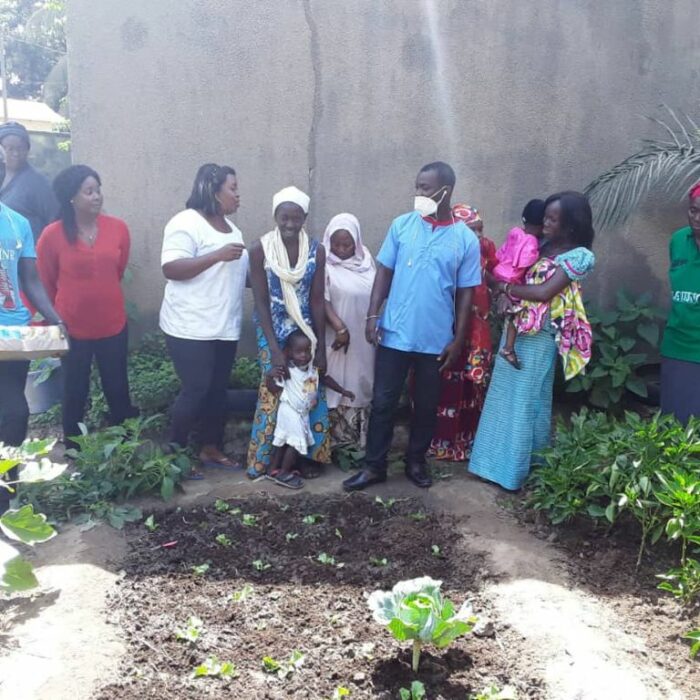
Since implementing DIG’s 2006 flagship garden in Senegal, we have established programs in eight African countries, impacting the lives of over 50k people. Having worked with so many unique communities, cultures, and partners, our journey has taken us back to Senegal to establish new programs in the southern city of Ziguinchor.
In 2020, when the world was being devastated by the Covid19 pandemic, friends, families, and former colleagues of Alan’s came together to honor his short yet vibrant life by supporting the growth of DIG. Alan served as a Peace Corps Senegal volunteer from 1972-1975. During this time, Senegal became a place where he nurtured his passion for global development and international justice. The seeds for justice that were planted in him so many years ago, took root and continue to inspire and impact people all over the world.
In Senegal, DIG is working to address the nutritional and food security needs of PLWHA, children who are under-nourished under age five, and pregnant and lactating mothers. Our program brings these prioritized groups together on the hospital grounds to learn how to grow and care for nutrient rich vegetable gardens. Groups participate in a one-year DIG training focused on designing, constructing and maintaining regenerative climate-smart gardens at the institutional level and in their own homes.
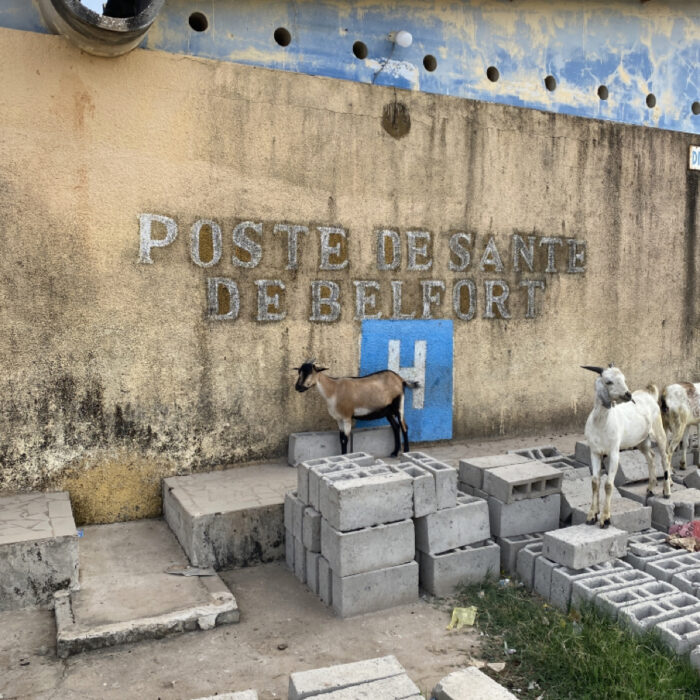
Dianke Kamara is a community healthcare worker at the Belfort Health Clinic in Ziguinchor, Senegal.
In 2020, while visiting a colleague at a neighboring clinic she noticed that the unused land which once stretched out from the clinic grounds had been transformed into a vibrant vegetable garden. Sprouting leafy greens, onions, hot peppers, green onions, eggplants and more, this urban garden overwhelmed her senses. When she found her friend, Dianke asked who was responsible for the garden and how how it came to be.
Dianke learned that the Kande 1 Health clinic garden has been started through a partnership with DIG. It functioned as both a food source for the clinic and staff as well as a learning site for its patients.
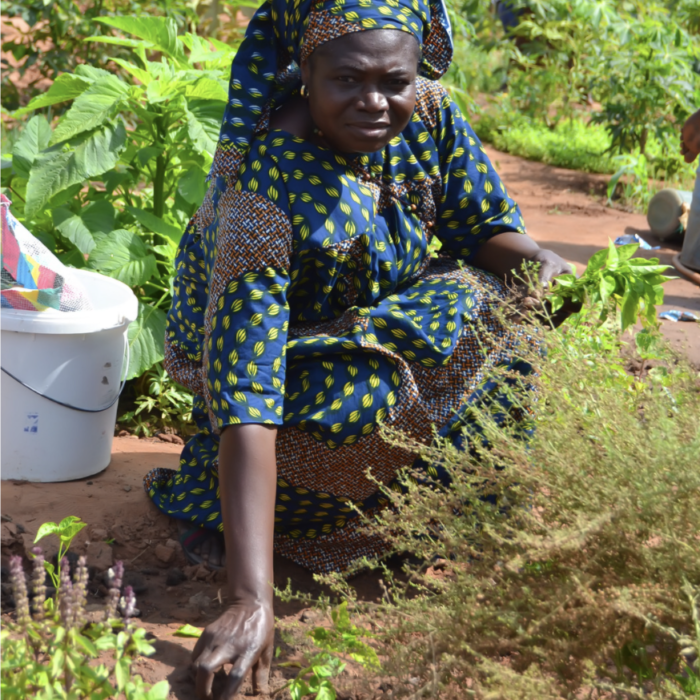
While the clinic got to harvest produce right right outside its doors, patients who enrolled in the DIG training program learned innovative regenerative agriculture practices to implement at home.
Dianke, who had a small home garden herself, knew firsthand the benefits of urban farming. She understood the immediate value of DIG’s program and went on to initiate conversations to investigate bringing DIG to the Belfort clinic where she worked.
Dianke started by recruiting her coworkers into the first training group. While some were skeptical that the small lawn space of Belfort could be turned into anything meaningful, they saw the value of joining with their fellow doctors and nurses in a community activity.
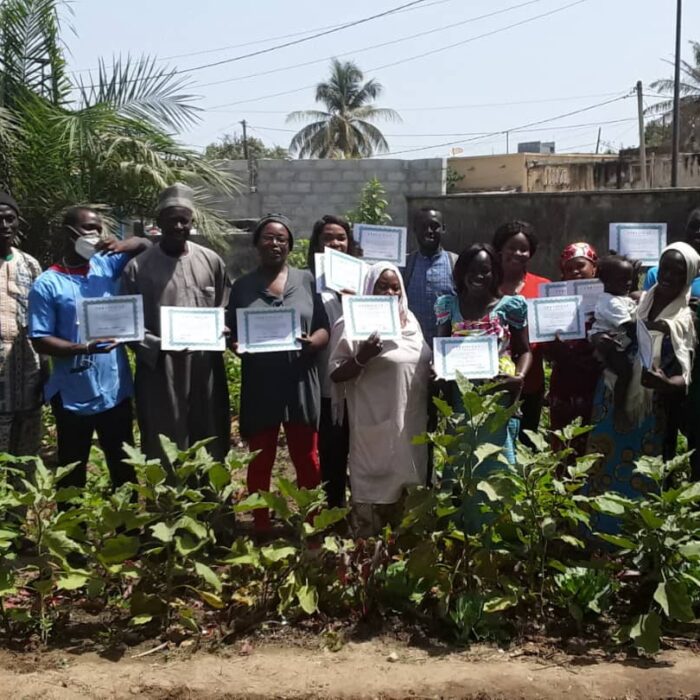
Anaïs, a DIG facilitator trained as far back as 2007, led the Belfort DIG program. She trained this group and continues to train others on how to prepare and enrich soil in discarded tires, micro-beds and sunken plots. Ensuring the gardens are prepared for the unique growing conditions and climate challenges in Ziguinchor, Anaïs works with the larger DIG team to adapt lessons and strategies for cultivation.
Reflecting on her work with the groups at this clinic, Anaïs shared,
As the group progressed in the training program, they learned how to cultivate, care for, and market over 30 different vegetable varieties. They honed-in on highly marketable vegetables, like bok choy and peppers.
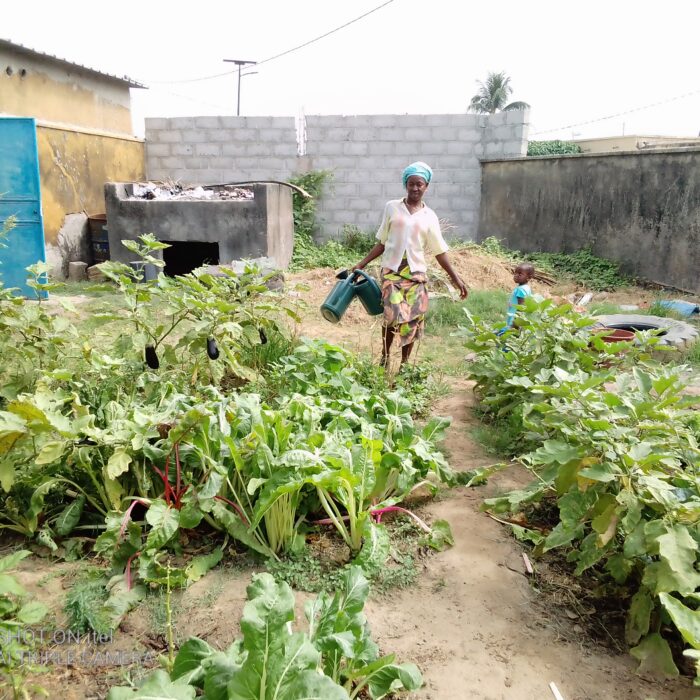
Over the course of the program, the Belfort group worked together to earn and save money from their produce sales. Between the months of July and August, the 15 member group saved $492!
As the DIG program is designed to have an impact at the household level first, the group chose to distribute the money amongst their members to invest in their personal home gardens. They continue to be supportive of each other and often visit group members’ homes to encourage their garden activities.
Dianke has expressed great pride in having brought this initiative to her community. She shared,